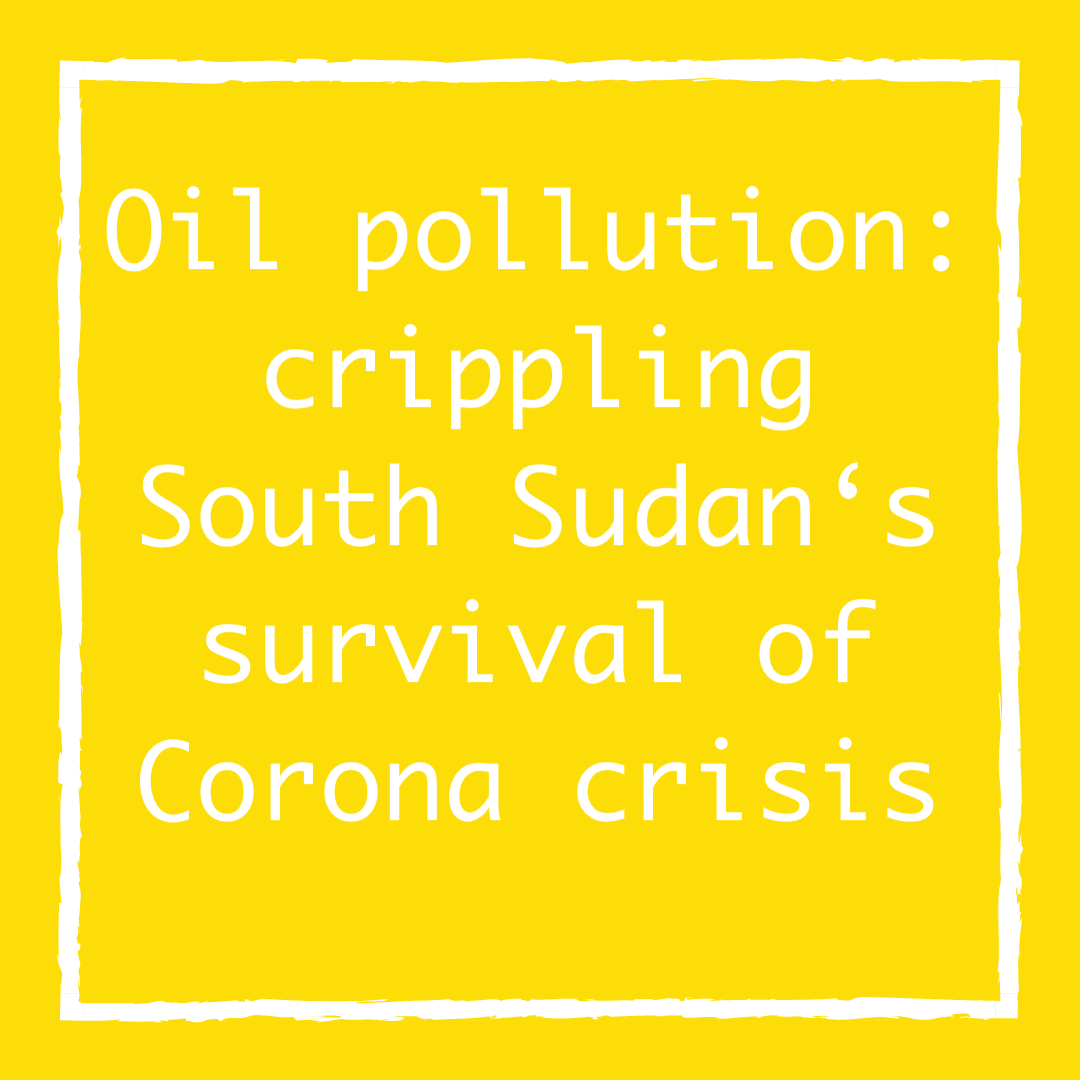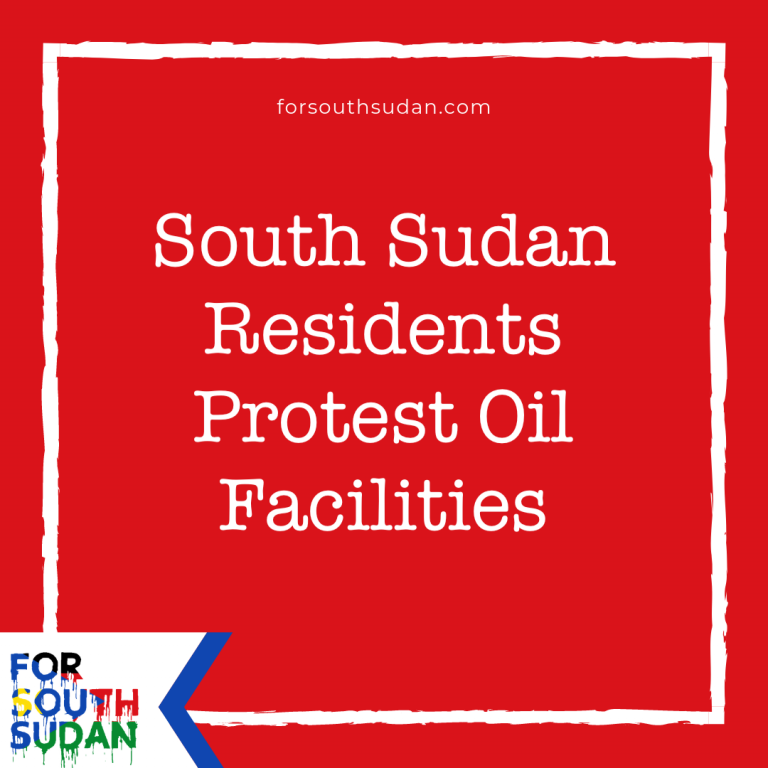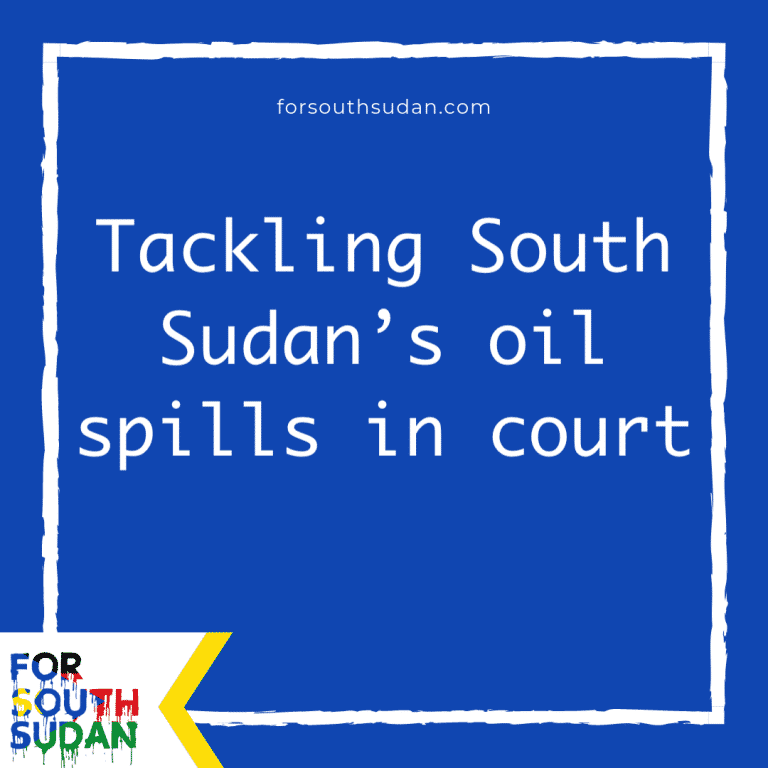The poisoning of much of South Sudan’s water with world-highest levels of lead, toxic chemicals and other pollutants stemming from oil wastes, spills and leaks is crippling the survival of the people of South Sudan of the Corona pandemic in the following ways:
No hand hygiene
One key way to prevent infection by the coronavirus is by thoroughly washing one’s hands with clean water and soap – both in extremely short supply in South Sudan, as reported in the New York Times and by Save the Children.
No medical treatment
Treatment of the coronavirus requires the consumption by patients of large amounts of potable water and the achievement of sterile environments in clinics. Both activities are predicated upon there being a supply of clean water. This supply is often non-existent in South Sudan.
Robust patients
Healthy and well-fed patients have encouragingly high rates of survival of the COVID-19 pandemic.
The “Black Tide” of oil pollution has made hundreds of thousands – perhaps even millions (an updated figure should have emerged from the audit of South Sudan’s environment and populace health – now conveniently postponed) of the South Sudanese hungry and sick.
Hungry because their farmland has been robbed of its fertility by effluents from oil and because oil-triggered conflicts have forced them to flee their homes. Sick because the ensuing malnutrition has joined with lead and other forms of poisoning in making them very sick.
Since much of South Sudan’s people are suffering from oil pollution-caused malnutrition and ailments, their rates of survival of COVID-19 may in fact be sadly very low.
No social distancing, unhygienic surroundings
Thanks to oil-caused environmental pollution and conflicts, more than 40% of South Sudan’s population has been forced to flee its homes. These people have been jam-packed into unhygienic refugee camps.
Watch leading medical expert Dr. Ayak Chol Denk Alak speak about the effects of oil pollution on health in South Sudan:
“Here’s the issue: effluents from oil. And here’s what these pollutants are causing: infertility among women, and birth defects among the women who do bear children. Their children are being born without heads, without limbs and with other deformities. Men have erectile dysfunctions and are committing suicide because of them. People have rashes on their bodies.
And all because the water is polluted.
People are dying – while oil companies build buildings in Juba.
Here’s something else that these pollutants are causing. The degradation of the environment. And what this means in practical terms for the people: they can’t farm in many cases. And what grows can’t be eaten. This robs the people in the Upper Nile region. of food security.
And this is the main concern of the people of South Sudan. People living in and around oil production sites, where so much money is coming from, shouldn’t have to be stretching out their hands to beg the UN and other agencies for food.
And last and certainly not least I want to speak about the animals. They are also suffering, like the humans.
It is not fair. What is happening is not fair. The proper management of oil wastes has to be made a priority.
Civil society should be open. Civil should not be threatened.
Civil society should not be intimidated about issue of oil pollution.”
Dr. Ayak Chol Deng Alak is one of South Sudan‘s most remarkable persons. She is an epidemiologist who is specialized sourcing and distribution funding, medications and other resources needed by health care programs. Ayak is also a celebrated poet, and co-founder of the AnaTaban Arts Initiative, which stages the Hagana Festival every year.




